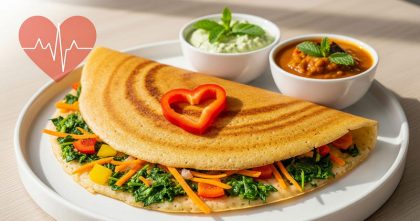You work 12-hour days to prove you belong in this country. You send money to your parents back home while saving for your children’s college tuition. You shuttle between soccer practice and classical music lessons, trying to give your kids the best of both worlds.
You eat dinner at 9 PM because that’s when the family finally comes together, then lie awake at 2 AM wondering if you’re doing enough—for your career, your family, your aging parents overseas.
You tell yourself this is temporary, that once you get the promotion, pay off the house, get the kids settled, then you’ll focus on your health. But your blood pressure is creeping up. You’re gaining weight around your middle despite eating “healthy” home-cooked meals. Your doctor mentioned something about prediabetes at your last checkup, which seems impossible since you’re not even overweight.
Sound familiar? You’re not alone, and more importantly, you’re not imagining the toll this lifestyle is taking on your body.
Across diaspora communities in the U.S., UK, Canada, and the Gulf, South Asians are experiencing heart attacks and diabetes at unprecedented rates—often 10-15 years earlier than their counterparts who remained in their home countries.
While we often blame genetics or diet, there’s a hidden factor that’s rarely discussed but may be the most dangerous of all: the chronic stress of living between two worlds.
This isn’t just about working hard or eating late. It’s about carrying an invisible emotional load that your heart feels every single day—and it’s time we started talking about it.
The Silent Load of Immigration
Immigration isn’t just about moving from one place to another—it’s about rebuilding your entire identity, support system, and sense of belonging while maintaining connections to where you came from. For South Asians, this process creates unique stressors that compound over years and decades.
Loss of Traditional Support Systems: Back home, you had extended family, childhood friends, and community networks that provided emotional support and practical help. In your new country, you’re often starting from scratch, creating artificial families from work colleagues and neighbors while missing the deep connections that sustained your parents and grandparents.
| Feature | Heart Attack | Cardiac Arrest | Heart Failure |
|---|---|---|---|
| Cause | Blocked artery (blood flow issue) | Electrical failure (no heartbeat) | Weak pump (chronic weakness) |
| Onset | Sudden or gradual chest pain | Sudden collapse | Slow progression over time |
| Main Symptom | Chest pain, shortness of breath | No pulse, no breathing | Fatigue, swelling, breathlessness |
| Emergency? | Yes – hospital immediately | Yes – CPR/AED required now | Serious, needs medical management |
| Outcome? | Treatable if caught early | Fatal unless CPR started quickly | Manageable with long-term care |




